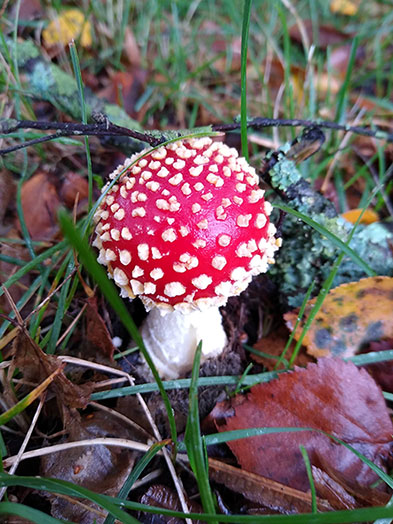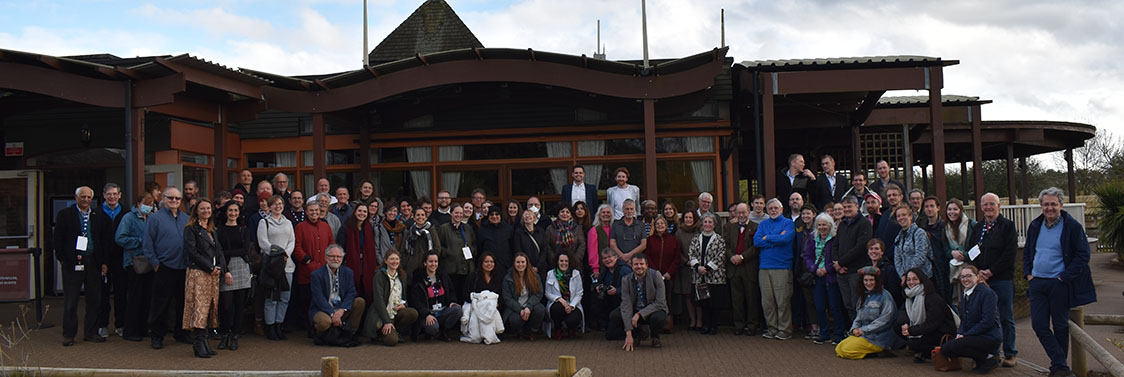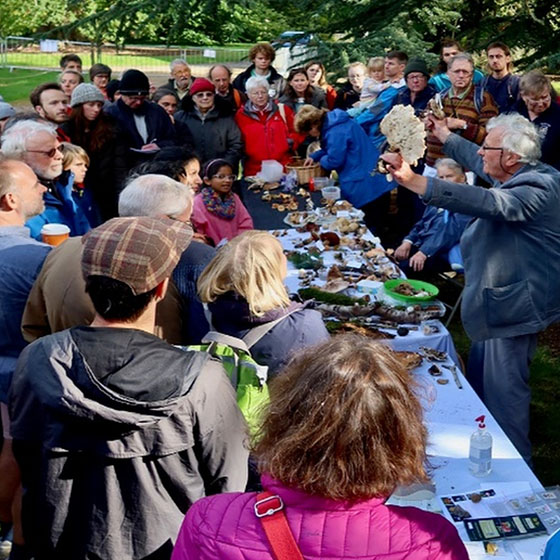The British Mycological Society and UK Fungus Day
This post is greater than 6 months old - links may be broken or out of date. Proceed with caution!

By Dr Emma Thompson, British Mycological Society
The British Mycological Society was founded over 125 years ago to promote the scientific study of fungi and has since grown to be one of the major mycological societies in the world, committed to promoting cutting-edge scientific research, fungal conservation and species recording and the provision of educational resources. As a charity and membership body, it is open to all who are interested in supporting, promoting and studying the diverse and fascinating fungal kingdom.


In early 2022, we published our new, three-year strategy that defines how we will work towards achieving our overarching mission: to promote fungal science internationally. Through focused activities aligned to three strategic priorities, we aim to ensure the Society’s long-term sustainability and resilience, improve key resources and services, broaden our outreach and raise the profile of the BMS nationally and internationally.
The activities and operations of the BMS are governed by a Council, supported by four main Committees: Fungal Biology Research, the Fungal Education & Outreach, Field Mycology & Conservation; Publications. The members of the Council and Committees are all volunteers with a huge breadth of knowledge and experience in all aspects of mycology - and heaps of enthusiasm! Together with BMS staff and many other individual volunteers, they are responsible for all that the BMS achieves.
Organising and delivering events is a major activity of the BMS to showcase, raise awareness and support advancement of many areas of mycology. As a result, the range of events is broad: we deliver conferences for mycology researchers, field events and workshops for biological recorders and conservationists, educational meetings, and outreach events for the wider public.
The work of the Fungal Biology Research Committee promotes fungal biology as pursued at universities and research institutions, creating a community of academic, industrial and other professional fungal biology researchers. Research interests include: cell biology, biochemistry and physiology; genomics, genetics and molecular biology; pathogenesis and disease control; evolution and systematics; environment and ecology; mutualistic relationships; systems biology; biotechnology. These subjects and others are included in our portfolio of scientific journals: Fungal Biology, Fungal Ecology and Fungal Biology Reviews.
An Annual Research Conference attracts academic fungal biologists and leading speakers from across the world; this year, an additional day of conference sessions specifically for research students was added to the programme to provide learning and networking opportunities for early career researchers. The success of this year’s event means the Research Students’ Day will become a regular feature in the annual schedule. The BMS also has a number of financial grants that are awarded to researchers at all levels and to other mycology-focused projects.

The Field Mycology and Conservation (FMC) Committee focuses on recording and describing the diversity of fungal life and its conservation. A huge task given the vastness of the fungal kingdom! BMS members and others have been recording the occurrence of fungal fruiting bodies since the BMS was first formed in 1896. These records are entered to the Fungus Recording Database of Britain and Ireland (FRDBI). The FRDBI holds over 1.5m records and is a major resource for conservation and research purposes. A network of local fungus groups affiliated to the BMS stretches from Scotland to the South of England. The groups provide an excellent opportunity for those starting out to explore the fungal kingdom as well as mutual support and help for more experienced forayers.
The BMS has been involved in the conservation of fungi for around 125 years. During the early years fungi had a low profile in the conservation world and it was through the efforts of the early Conservation Officers of the BMS and others that the development of Red Data Lists, Biodiversity Action Plans, and the selection of species for the Wildlife and Countryside Act took place.
To encourage learning and education, the FMC committee organises a number of meetings, forays and workshops that are open to everyone. And a quarterly publication, Field Mycology, covers topics of particular interest to field mycologists and conservationists.
The Fungal Education and Outreach (FEO) Committee develops a variety of resources for education including classroom activities and university teaching materials. The Committee is currently working to ensure mycology is included in a new GCSE in natural history, approved by the Department for Education and planned for launch in schools in 2025.
To inspire everyone about the wonders and diversity of the fungal kingdom, the FEO committee organises, supports and promotes events and activities running concurrently across the UK on UK Fungus Day. The first UK Fungus Day took place in 2013, when groups of volunteers got together and invited the public to join them on their excursions to find and record local fungi. It has grown significantly since then: alongside the many local groups running events, and universities and museums showcasing their research and collections, UK Fungus Day provides opportunities to discover more about fungi through art and performance, online talks, crafts and creations, blogs, quizzes and competitions.
The growing awareness and interest in fungi means it’s an exciting time to find out more about mycology.
Connect with the British Mycological Society | |
British Mycological Society website | |
BMS main account BMS fungal biology research BMS outreach, fungus ID & fungi in the news | |
BMS YouTube Event recordings & other videos | |
BMS Facebook Group For fungus ID, sharing finds & other info | |
UK Fungus Day website Annual event website | |
UK Fungus Day Facebook Page Annual event news | |
UK Fungus Day Instagram Photography competition & fungus images | |
Contact us: General enquiries Membership & BMS journal subscriptions UK Fungus Day | |
More from British Mycological Society